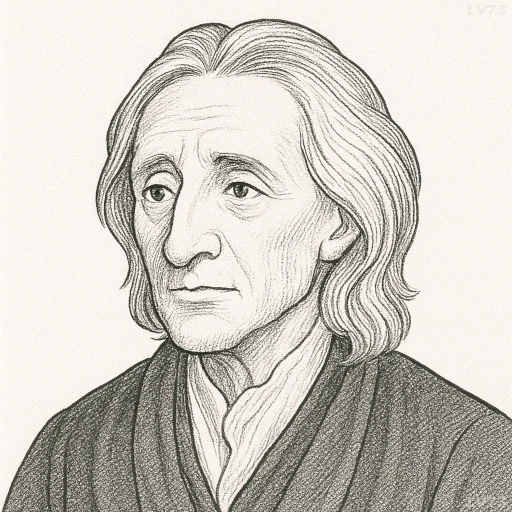“I attribute the little I know to my not having been ashamed to ask for information, and to my rule of conversing with all descriptions of men on those topics that form their own peculiar professions and pursuits.”

- August 29, 1632 – October 28, 1704
- Born in England (UK)
- Philosopher and political thinker
table of contents
Quote
“I attribute the little I know to my not having been ashamed to ask for information, and to my rule of conversing with all descriptions of men on those topics that form their own peculiar professions and pursuits.”
Explanation
In this quote, John Locke reflects on the importance of curiosity, humility, and communication in the acquisition of knowledge. He credits his understanding to his willingness to ask questions and seek information from others, especially those who have expertise in specific areas. By conversing with people from various walks of life and engaging with them on the subjects they are most familiar with, Locke was able to broaden his own perspective and deepen his knowledge. This attitude of openness and inquiry reflects Locke’s belief in the value of learning through interaction and experience, rather than relying solely on formal education or one’s own limited perspective.
Locke’s approach to learning was groundbreaking in the context of the 17th century, a time when formal education and access to knowledge were often limited to specific classes or institutions. His emphasis on conversing with people from all backgrounds suggests a democratization of knowledge, where learning is not confined to the privileged few but is accessible to anyone with the curiosity to seek it. Locke’s humility in acknowledging his ignorance and willingness to ask questions also speaks to his broader philosophical stance on empiricism—that knowledge is not innate but is acquired through experience and interaction with the world.
In modern times, Locke’s approach to learning remains relevant, particularly in the context of collaborative learning and cross-disciplinary dialogue. The idea of engaging with experts or individuals from different fields to gain insights can be seen in modern research, professional development, and mentorship. Locke’s emphasis on asking questions and learning from others encourages a lifelong learning mindset, where we remain open and humble in our pursuit of knowledge. Whether in academia, business, or personal growth, his approach reminds us that true understanding often comes from conversations that bridge different areas of expertise and perspectives.
Would you like to share your impressions or related stories about this quote in the comments section?
